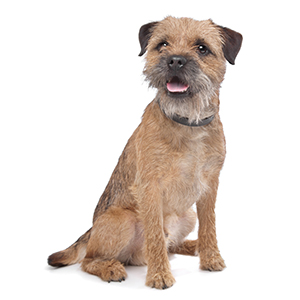Border Terrier Traits
Thinking to adopt a Border Terrier and need to understand the traits of a Border Terrier Dogs to help you decide if a Border Terrier is easy to adapt into your household.
Border Terrier scores  out of 5 in the scale of adaptability compared to other dog breeds.
out of 5 in the scale of adaptability compared to other dog breeds.
Border Terrier Personality
-
Hoping to bring a dog into your home? Some dog breeds are much easier to own than others, especially for beginner dog parents.
To find the easiest canine breeds to own, we looked at a variety of important characteristics. And you might be surprised by the characteristics that matter most. For instance, you might think you want a clever dog. Highly intelligent dogs aren't always the simplest to train, because trainability is more about a dog's willingness to follow instructions than his capability to recognize them.
You might assume an energetic dog will be the simplest to keep healthy. But a dog with a lower energy level and no genetic predisposition to disease will really be easier to handle. Plus, choosing a dog with an easygoing temperament - and minimal grooming needs - will go a very long way toward keeping you sane.
Ready to find the ideal dog? Look into 5 of the easiest dog breeds to own.
Top 5 Easiest Dog's To Own
2. Border Terrier - The border terrier is very "joyful," "plucky," and "affectionate." This dog has a medium energy level but a more laid-back character than many other terriers.
3. Bulldog - If you want a patient and mellow pet dog, you can't go wrong with the bulldog. You can efficiently train your bulldog - especially if you use lots of praise and rewards and keep a sense of humor.
4. Cavalier King Charles Spaniel - They can be loyal hiking partners or shameless couch potatoes, relying on the owner's personality - as long as they get an enjoyable walk each day.
5. Basset Hound - These medium-sized dogs aren't very energetic. And while most dog owners won't put the basset hound's hunting prowess to the test, they'll treasure the breed's extreme patience with children.
What to do if you lose your Border Terrier
If your Border Terrier Dog or any other pet has gone missing and it does not have an identification tag with a phone number, you can:
1. List your missing pet details at Pet Reunite website here.
2. List the missing pet on the Local Facebook Lost Pets Groups Here.
3. Call the local vets to see if someone has brought in your missing pet.
4. Contact the RSPCA or Visit the RSPCA Lost Pets website and complete a Lost Pet Report.
5. Visit Lost Pets Pages of Animal Pounds.
What to do if you find a lost Border Terrier
If you find a Border Terrier Dog or any other pet and it does not have an identification tag with a phone number, you can:
1. Register the found pet details at Pet Reunite website here.
2. Register the missing pet on the Local Facebook Lost Pets Groups.
3. Call the Local Authority to collect the lost animal.
4. Take the pet to the local Animal Pound assigned to your suburb.
5. Take the pet to the local Vet who usually scan the animal’s microchip and phone the registered owner of the pet.
Laws Regarding Missing Pets
1. It is against the law to keep any animal that you find.
2. Pets are generally considered property and it is illegal to take and keep someone else’s property.
3. You must call your local animal control unit and file a FOUND AN ANIMAL report for any dog or cat you find.
4. To reclaim your lost dog, cat or other pet from the animal shelter you must pay a release fee.
5. If your dog or cat is unregistered, you will have to register your pet before you can take it home.

